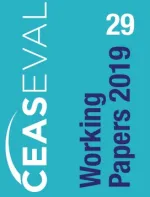Borders and the mobility of migrants in Hungary

CEASEVAL Working papers No.29
The aim of the Hungarian case study was to analyze the functioning of EU borders in the governance of migrants’ mobility. The fieldwork was carried out between May and December 2018. Legislation, public administration and support system for refugees has changed significantly in Hungary since autumn 2015. Access to international protection has become more and more restrictive, and the amendments adopted in the past three years make sure that refugees have almost no chance of gaining access to protection. According to the government, solidarity is limited to the construction of the fence that would protect the borders, sovereignty and wellbeing of Hungary. Border agents agree with the fence, they consider it both an effective physical defender and a symbolic measure of Hungary’s effort to defend Europe. The experiences on reception and bordering practices depend on the year of the arrival. The milestone year is 2015: those arrived a few years before usually crossed the green border illegally to Hungary and have been sent to closed and later to open camps. Those arrived during the times of open borders in 2015 recall a rather smooth border crossing, and have also rather positive experiences with border officials and police. Those arrived after the tightening of the Hungarian-Serbian/Croatian border in late 2015 experienced much harsher treatment and have worse memories on the reception upon arrival. Migrants who arrived in the past year, talk about bad conditions of the bordering practices, especially those which take place in the completely sealed transit zones. Only a few migrants in our sample arrived intentionally to Hungary, and quite many interviewees have left Hungary after they received refugee status (but returned later mainly due to legal reasons). Their aims were either to visit friends (also migrants) or to work and live (illegally) in other Western or Northern European countries.
Keywords: refugee crisis, Hungary